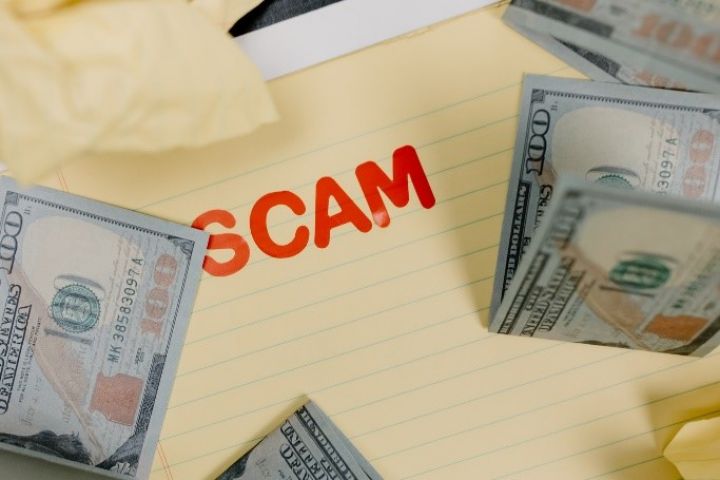
We are currently receiving regular reports from individuals and companies who have fallen victim to scammers using schemes related to document legalization services.
Below we describe the most common scams and urge everyone to remain vigilant.
1. Legalization services for fund transfers from brokers
This is one of the most frequent schemes targeting investors working with unscrupulous forex and cryptocurrency brokers or exchanges.
The scheme typically works as follows: the broker informs the client that after transferring funds from their brokerage account to their bank account, the funds were blocked by the bank. In order to unblock the funds, certain documents must allegedly be legalized in the country of the broker's registration. Usually, these are remote offshore jurisdictions such as the Bahamas, Dominican Republic, or Seychelles.
Fraudulent brokers often claim they have already ordered legalization services from a reputable company—sometimes even falsely naming our company. In known cases, the amount requested for such “legalization” has ranged from 5,000 to 10,000 USD.
So far, we have received information about the involvement of brokers like A1 Capitals, Phoenix Allianz Invest, and SNG Capitals in such scams. This list of fictional names seems endless.
Please note: for ethical reasons, we do not provide services to forex brokers or cryptocurrency exchanges. We strongly advise our clients to verify counterparties before transferring any funds to a brokerage account. For this purpose, our company offers a special verification service, which allows you to check the existence, history, and current status of companies in nearly any country worldwide. The cost of this service is negligible compared to potential financial losses.
Most of the brokers and exchanges we have checked in recent years turned out to be either non-existent or newly registered offshore shell companies, often with nothing more than a PO box.
The total amount of losses reported by victims who contacted us last year alone exceeds 500,000 USD — and this is just the tip of the iceberg.
2. Inheritance from a wealthy aunt
This is one of the oldest tricks in the book. Probably everyone has received emails about an unexpected inheritance. This scam is even documented on Wikipedia under “Nigerian letters.” Nevertheless, it still occurs frequently.
The victim is usually informed that a close relative has passed away, leaving a large inheritance. However, in order to receive it, they must pay for insurance and legalization fees. Scammers often provide forged wills and lawyer certificates — poorly made and easily spotted as fake.
In one case known to us, the “foreign relative” engaged in friendly conversation with the heir via social media for several months before “suddenly dying” and leaving the inheritance.
3. A large buyer from a distant country
This scam targets manufacturing companies and legal entities and has been reported to us from all over the world. It became especially widespread during the pandemic.
The scam usually begins with an attractive offer from a company based in a remote country — often from the Middle East or Africa — offering to urgently purchase a large quantity of the manufacturer's products. A high-ranking official or representative of an international organization often claims to be involved. In one case, a “Minister of Islamic Affairs” from Oman held months-long negotiations with a Russian wooden door manufacturer. In another, a representative of the African League claimed to be purchasing flour from Kazakhstan.
Talks quickly move to signing a contract and making a payment, but the supposed buyer insists that — by the laws of their country — the contract must be signed in person and legalized locally. The manufacturer is then asked to fly to Oman or Ghana to finalize the deal. The country may vary.
A “local lawyer” or “notary” recommended by the client offers to handle everything on-site for a “small fee” — typically 7,000 to 15,000 USD.
Of course, once the funds are transferred to the fake lawyer’s account, all parties involved in the deal disappear.
Once again, we urge everyone to stay alert. A simple check of the sender's email domain could reveal that they have no connection to Oman or Ghana. Requesting proof of company registration would likely scare off fraudsters from the outset and save time and money.
Additional Security Recommendations
- We do not use messengers (WhatsApp, Telegram, Viber, etc.) for business communications. All inquiries must be sent to our official email: kontakt@schmidt-export.de.
- We do not accept cash payments, transfers to private bank accounts, or payments through suspicious intermediaries.
- Payments must be made only to official invoices issued by a registered legal entity with verified bank details.
- We do not offer “fast-track” services or legalization methods that violate legal procedures.
- Always verify the sender's email and domain, especially when payment or sensitive information is involved.
If you have any doubts or concerns, contact us directly via our official email. We will confirm the authenticity of the request and provide a free consultation.
Do not neglect to verify your counterparties. It can save your money, time, and reputation.





